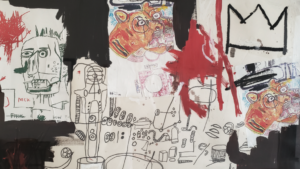Bodies, Libraries, World Wars: The Case of Golden Age Detective Fiction
THREE WEDNESDAYS, OCTOBER 30, NOVEMBER 6 AND 13, 6:00–7:30 P.M.
RICE UNIVERSITY. DIRECTIONS WILL BE PROVIDED TO SUBSCRIBERS.
Note: This course is sold out. Please join the waitlist below (specifying which date you would like to join in the Notes section). We will inform you of any space available should there be a cancellation by each course date you select.
The “golden age” of detective fiction refers to the period between the two World Wars when (mostly English) authors produced an astounding variety of texts, often under multiple pseudonyms. In 1930, with the formation of the Detective Club, writers set for themselves, for the public, and for posterity a set of rules for writing detective fiction, many of them having to do with a sense of “fair play” for their readers. Founders of the club included Agatha Christie and Dorothy L. Sayers. Although many of the mysteries written at the time offer ambivalent representations of women’s agency and sexuality, this was nonetheless a genre in which women excelled and achieved popular and sometimes critical success.
In this three-part course taught by Rice University’s Helena Michie, we will be asking—and attempting to answer—a variety of questions, big and small. On the big side: What is the appeal of mystery stories, in particular murder mysteries? Why is it important to have solutions, to put “matter into place,” and why do we keep returning to the genre after one or more mysteries have been “solved”? Medium-sized questions will have to do with elements of the genre itself from the locked room to the often-euphemistic approach to dead bodies. Smaller scale, but still important questions will coalesce around the reading of three novels by three famous female practitioners of the genre: Agatha Christie, Dorothy Sayers, and Ngaio Marsh. In order to avoid the inevitable spoilers, and to enliven and deepen our conversations, Professor Michie asks that seminar participants please read the novel we are discussing before each class:
October 30: Agatha Christie, The Murder of Roger Ackroyd (1926)
November 6: Dorothy L. Sayers, Murder Must Advertise (1933)
November 13: Ngaio Marsh, Artists in Crime (1938)
Helena Michie is the Agnes Cullen Arnold Professor in Humanities at Rice University and the former Director of Rice University’s Center for Women, Gender and Sexuality. She received her PhD from the University of Pennsylvania and is the author of five books in Victorian Studies and the study of gender and sexuality. Professor Michie has been an NEH and Guggenheim Fellow. She teaches courses in feminist theory, literary theory, and Victorian literature and culture.





